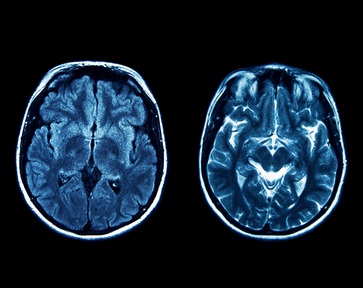Fungal infections could be linked to Alzheimer's disease
Evidence of fungal infections has been found in the brains of people with Alzheimer’s disease, according to research published in Nature’s Journal of Scientific Reports.

Researchers from the Autonomous University of Madrid found traces of several different types of fungus in the brains of 11 deceased individuals, who were previously diagnosed with Alzheimer’s disease.
Dr Laura Phipps, science communications manager at Alzheimer’s Research UK, said: “While this very small study suggests that fungal cells may be present in the brains of people with Alzheimer’s, we cannot conclude from this work that such infections cause or increase the risk of the disease.
“Without a corresponding medical history, we do not know whether the fungal infection occurred before or after the onset of Alzheimer’s disease, or whether this group of people had an increased risk of fungal infection due to other health complications.
“This study is a snapshot of the brain after death – we would need to see larger studies, following people with fungal infections for extended periods of time, to better understand whether there is a relationship between such infections and Alzheimer’s disease."
She added: “Alzheimer’s Research UK is funding ongoing research investigating whether common infections could influence the progression of symptoms for people with Alzheimer’s. The best current evidence suggests that eating a healthy and balanced diet, not smoking, staying physically active and keeping weight and blood pressure in check can all help reduce the risk of dementia.”
Researchers examined the brains of 11 people who had lived with Alzheimer’s disease and compared the findings with the brains of 11 healthy individuals who died at a similar age.
They investigated different regions of the brain, looking for evidence of fungal infection. Traces of several fungal species were found in nerve cells within several regions of the brains that became damaged by Alzheimer’s disease.
In contrast, the brains of the healthy individuals were identified to be free of fungi.
Findings from the study state: ‘The possibility that Alzheimer’s disease is a fungal disease, or that fungal infection is a risk factor for the disease, opens new perspectives for effective therapy for these patients.’
Although researchers have highlighted that there is no conclusive evidence to establish whether the fungus had caused Alzheimer’s, they suggest that the disease could be targeted with antifungal treatment.
However, Dr Clare Walton, of the Alzheimer’s Society, has commented on the findings, stating: “Traces of fungus in the brains of these few people with Alzheimer’s is not enough to conclude that it plays a role in the development of the disease.
“Although there has been research in the past to explore whether infectious diseases can raise the risk of developing Alzheimer’s disease, the results have so far been inconclusive.
“We do know that Alzheimer’s disease weakens the internal barrier that protects the brain and this may make it more open to infections.
“There is still much research to be done in order to truly understand the causes of dementia. As it is a progressive, long-term condition, it can take many years before symptoms appear and so it is hard to determine the initial cause based on samples taken after death.”
Previous research on Alzheimer’s suggested that the disease could be spread through blood transfusions, operations and even dental work.
According to the World Health Organisation (WHO), Alzheimer's disease is the most common form of dementia, which affects nearly 50 million people worldwide and an estimated 850,000 people in the UK.
At present, scientists have not found a therapy to stop or reverse Alzheimer's symptoms, which include memory loss and disorientation, as well as anxiety and aggressive behaviour.
Latest News
 29-Jul-24
Dementia Bus gives carehome.co.uk staff insight into life with dementia
29-Jul-24
Dementia Bus gives carehome.co.uk staff insight into life with dementia
 01-Mar-24
Find out the top care homes in 2024
01-Mar-24
Find out the top care homes in 2024
 21-Mar-23
UK's top care homes in 2023 revealed
21-Mar-23
UK's top care homes in 2023 revealed
 03-Jan-23
carehome.co.uk launches free care helpline
03-Jan-23
carehome.co.uk launches free care helpline
 13-Dec-22
5 mins with Emily Whitehurst, chief operating officer for Constantia Healthcare
13-Dec-22
5 mins with Emily Whitehurst, chief operating officer for Constantia Healthcare